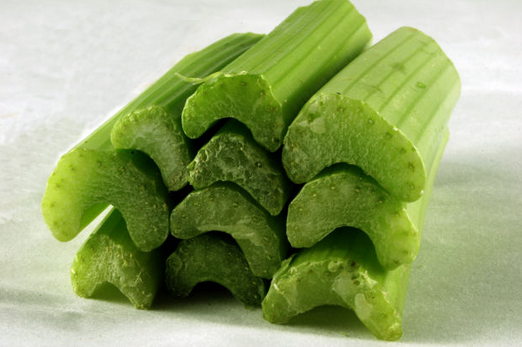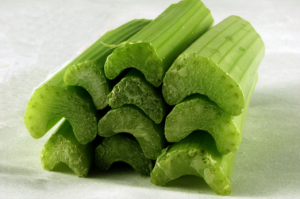One of the great things about chickens is the fact that they have a pretty well developed sense of what they should eat and what they should avoid eating. For instance, they will instinctively stay away from the plants that are a part of the nightshade family such as tomatoes or eggplants. They somehow seem to know that there is something wrong with them, something that might harm them. But can chickens eat celery, for instance? Does this vegetable has the power to damage their health or is it one those foods that are recommended to take in?
Can Chickens Eat Celery Or Is It Harmful For Them?
Everyone knows that celery is one of the healthiest vegetables that can be found in the nature but is it good for chickens? Well, the truth is that in this case, it is actually extremely healthy for them too.
It has almost no cholesterol and no saturated fats. Not to mention that it is a reliable source of Riboflavin and many other nutritional elements that can only boost up the health, such as:
- Calcium
- Magnesium
- Vitamin B6
- Pantothenic acid
- Vitamin A,C,K
- Folate
- Potassium
- Manganese
Celery can be included in the green category of vegetables we feed to our chickens along with lettuce or kale for instance. Basically, when feeding a chicken the “what’s good for me, as a human, is good for them too” is applied with a few restrictions. No sugary or salty foods should be served as an example. So, whether you are giving them celery or celery leaves, they will eat them and they will also get to have a healthy diet.
Baby Chicks – How To Handle Them?
Taking care of little cute and fluffy chickens is no easy thing to do but it is totally worth it. As they get bigger and bigger, most of the potential problems that might be lurking around will go away. However, while they are still babies, a lot of care and attention are needed. So, prepare yourself, as you are going to be taken through the whole process. Here are the basic steps to take into consideration.
Clear Your Schedule!
It might sound brutal and you might be saying “Yeah, right! Are you kidding?” However, we mentioned before that taking care of baby chicks is not an easy thing to do, so the clearing of your schedule is extremely important. They will need constant surveillance for the first 4 weeks of their lives. If you have any plans like day trips or even longer trips, make sure you have someone to take care of the chicks while you are gone, otherwise, you might as well cancel them!
Decide The Place Where They Will Stay
It is important to set up a special place for them to live ever since you get them. They might be tiny and easy to handle at the beginning but keep in mind the fact that they are going to grow and they will take up more space and make even more mess. You can prepare a garage, the basement or a working space you no longer use. In any case, it should be safe from any predators and it should also be draft-proof. The point is that it should be away from your living area but not too away so that you can have a quick and easy access to them.
Create Their Living Environment
Make them a small house, one that should be properly ventilated. It can be a card box with some holes for the ventilation process. Also, they should have a strong heating source. Just think about the fact that during the first week of their lives, they need to stay in an environment where the temperature is of 95 degrees F. During their second week, they will need a temperature of 90 degrees F and as they grow older, the temperature will drop by 5 degrees every week, until they will be ready to be taken outside.
You also might want to take into consideration placing an absorbing material underneath them, as their physiological needs will be extremely intensified. Water should be at their discretion too.
Keep An Eye On Them At All Times
You should know that they will do a lot of things they shouldn’t such as kicking up the bedding into the water and into their food, it’s best to always check up on them. Closely observe their behavior, as it will tell you many things: if they are crowded in one spot under the lighting, it means that they are cold. If they are scattered along the edges and clearly avoiding heat, it means that they are too hot. Make the proper adjustments.
Baby chickens require a lot of attention and care. Use these tips and take good care of them. When they grow older, chickens will be able to eat a lot of things, celery included.
References:
http://www.mypetchicken.com/backyard-chickens/chicken-care/chapter-4-caring-for-baby-chicks.aspx?t=1
http://www.backyardchickens.com/t/150066/are-celery-leaves-ok









Leave a Comment